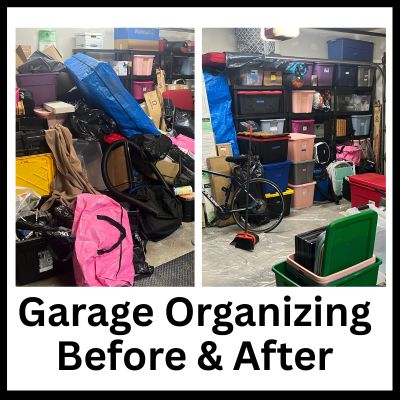ADHD and Self-Criticism

ADHD and Self-Criticism are closely linked. Whether you’re a very high-achieving professional or someone who enjoys your time at the couch like it’s your career, people with ADHD are notoriously hard on themselves! Many people with ADHD are also perfectionists who have had a lifetime of unmet self-expectations. They use shame as their tool for motivation, which exacerbates their ADHD because it divides attention. Instead of being able to be present with whatever it is you’re doing, your brain is busy listening to the part of yourself that’s telling you you’re not good enough, that you should do better, and you’re a fraud. In this post, I’ll talk about why self-criticism is so detrimental, how to identify it, and how to change your thoughts so that become even more motivated than ever before!
Because people with ADHD have limited access to the prefrontal cortex of their brain, they rely on the more emotional part of their brain to make decisions and to do things. Shame can be a very addictive emotion because it reinforces all of the negative thoughts people have about themselves. Shame also helps create emotional cues to remember to do things, so in a way, shame can feel like it helps improve productivity. Strong negative emotions may feel motivating. But they can only take you so far, and then they actually have a very detrimental effect to your well-being.
How to identify self-criticism
It may be hard to identify self-criticism, especially if you’ve grown up with highly critical parents or teachers, or in an environment that put a lot of emphasis on external achievements. Your friends may tell you that you’re really hard on yourself. Another way to tell if you’re self-critical is if you’re overly critical about other people, or if you think everyone else is more talented and better than you are. Another sneaky way of noticing if you’re being self-critical is if you notice that your inner dialog makes you defensive. You may often feel anxious or depressed. You can even look at your posture for clues to see if you’re being self-critical. Are you standing or sitting with slumped shoulders, with your chest caved in, or standing with your weight shifted to one side? These could be indicators that you’re not confident and proud of who you are. Your house may be very disorganized, or the complete opposite, where nothing is out of place and everything feels utterly sterile, cold, and ridged.
Why it’s so bad
You may feel like being hard on yourself is a good thing. Like, if you aren’t hard enough on yourself, you’ll turn into a slovenly lump who never gets off the couch and eats junk food all day. You may think that it’s healthy to be critical because it helps you work harder and achieve more. In reality, it IS good to have a healthy sense of self-awareness. You DO want to be aware of the areas that you could improve on so that you can do better next time. It’s important to be able to listen to feedback with open ears without getting defensive. Narcissists cannot handle anything but positive feedback. Have you ever tried to give helpful suggestions to a narcissist? They can’t deal. You want to be able to welcome feedback, but know how and when to tune it out if it becomes excessive. The Toastmasters method of giving feedback is the sandwich method. When giving another Toastmaster an evaluation for their speech, it’s recommended to say something positive, then let the person know something that could help their speech next time, and then conclude with another positive comment. This helps someone by giving them something to work on within a supportive structure.
But when negative feedback goes unregulated, it plays a real number on your self-esteem! As the negative words add up, you’ll feel worthless, you’ll feel guilty when you don’t do as well as you had hoped, and you’ll feel like a failure. Self-criticism hurts! When you feel like a failure, you’ll start to attract circumstances that you’ll fail at so that you can subconsciously prove to yourself that you are indeed a failure. It will be like a snowball effect. The feelings of worthlessness will compound. Soon, the people around you will also start to feel like worthless failures if they weren’t feeling that way already. Through empathetic mirroring, when you’re overly critical about yourself, you will bring other people around you down, or you’ll let them bring you down even farther. Negative thoughts will also eventually kill your ambition, your creativity, and your passion. You’ll be miserable and you won’t get anything done.
How to Quiet Your Inner Critic
If you really want to be successful, productive, and have a positive ripple effect on the people around you, you’ve got to quiet your inner critic. To quiet your inner critic, you first need to be aware of your thoughts! This is called “metacognition” (thinking about your thinking). This level of self-awareness takes a lot of practice. Negative thoughts can be illusive and hard to pinpoint. You may have gone down a 15 minute rabbit hole of inner dialog before you realize how negative it was. Once you’re aware of your thoughts you can then change your neural pathways so that you can rewire your brain for a healthy mixture of constructive feedback layered into self-compassion.
- Meditation is a great way to notice what you’re thinking about. Set a timer and sit (or lay) still for 5 minutes or more, and practice tuning in to your breath. As soon as you notice your focus shifting to your thoughts or to something other than your breath (a noise, a smell, a sensation etc.), practice shifting back to your breath. This practice of continually refocusing will get easier over time. It will also help you gain more access to your prefrontal cortex, which will help you be more patient, motivated, and you’ll have a much easier time focusing. Alternatively, you may choose to get really present with the noises around you, the smells, or the sensations in your body. The point is to pick SOMETHING to focus on, and practice refocusing on that one thing over and over.
- Instead of asking yourself negative “what if?” questions all day, such as “what if I fail”, “what if something goes wrong”, “what if something bad happens”, switch your questions to positive “what if?” questions. Ask yourself “what if I do a great job?”, “what if everything works out?”, “what if I’m worthy and deserving of great things?”. These sparks of curiosity are a quick way to detour your mind out of the mud. Your brain LOVES to be curious. It’s like giving a dog a bone. Give your brain some positive questions to chew on, and watch your reality morph for the better!
- Are you above or below the “Line of Choice”? When you’re below the line of choice, you’ll notice yourself feeling worry, unforgiveness, doubt, fear, guilt, shame, judgement, and being stubborn or sarcastic. When you’re below the “line of choice”, you’ll have a much harder time having the type of life you want to have. When you’re above the “line of choice”, you’ll feel peace, joy, contentment, happiness, love, faith, trust, patience, humor, connection, commitment, discernment, creation, and wonder. When you’re below the line of choice, identify it, and choose to do something to help you get above the line. Listening to music is one of my favorite ways to shift above the line. Physical movement, coloring, petting my dog, and going out into nature (or even just looking at pictures) are other quick and easy ways that I use to get above the line.
Make Time For That Part of Yourself
Negative thoughts are addictive, mainly because you’ve worn the grooves in those neural pathways so deep. It can take a while to reset your mental patterns. But I want to make sure to say that if you’re really feeling negative, it’s OK! Make time for your negative thoughts, just don’t let them run the show. If you notice yourself thinking or feeling negative, write it down on a note on your phone, or a dedicated notebook, and let your inner critic know that you’ll be back to discuss that with them at a specific time. You may even want to put this date and time on your calendar so you don’t forget. When people are ignored, they usually get louder. Similar to how a teacher would treat a young playground bully, let your inner critic know that they are heard, but that they’re not in charge. You’re taking back the reins. Schedule weekly check-ins with your inner critic to make sure they feel heard and acknowledged. You can take their advice into consideration, but if you do decide to implement their plan, it will be on your time, not theirs.
Feeling Better
Once you start shifting your thoughts from self-contempt to ones that foster self-love and compassion, notice how much better you feel about yourself. Once you start FEELING better, you’ll notice how so many good things start to open up in your life. You’ll start to notice coincidences which is the universe’s way of telling you that you’re on the right track. When you can authentically shift how you feel, life will get infinitely more rewarding. It will feel like doorways will start to open up where there weren’t doors before. And since you’re feeling better, this will be reflected in the organization of your home as well!
What is your favorite way to calm your inner critic? Please let me know in the comments!

By Jean Prominski, Certified Professional Organizer
Don’t forget to sign up for my organizing classes here
Download my free 5 week journal The Seattle Sparkle Method to Get Organized and Stay Organized
Sign up for my free 4 Day Color to Declutter Challenge.
Become part of a like-minded community by joining my Facebook Group, Declutter and Organize with Seattle Sparkle.
Ready to book a consultation? Complete this form.
For artwork to energize your home, order through jeanprominski.com or on Etsy.




